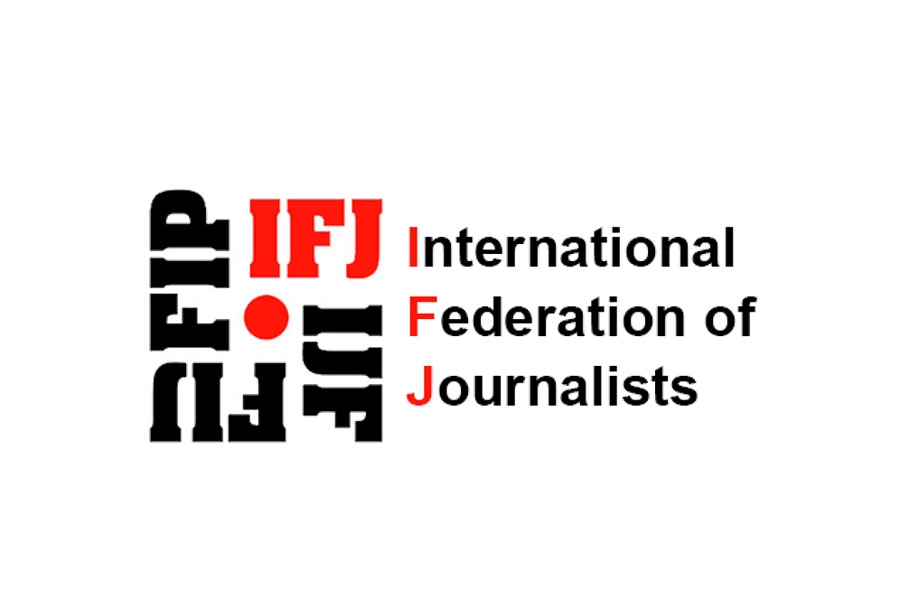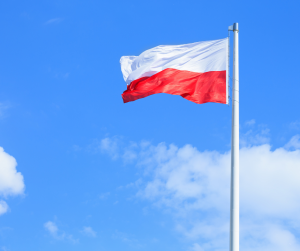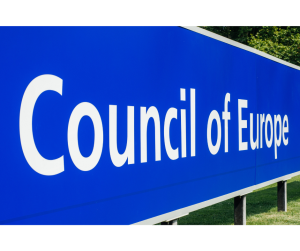One year on from the war in Gaza, the International Federation of Journalists (IFJ) looks back at the bloodiest period in the history of journalism – at least 138 journalists dead in Palestine, Israel, Lebanon and Syria during 12 months of conflict – and the extraordinary solidarity delivered by its affiliates and individuals across the world to the Palestinian Journalists’ Syndicate (PJS). On this grim anniversary, the IFJ renews its call for funds to support journalists and media workers in Gaza in their daily struggle to report the war and stay alive.
Israel’s ground invasion of Gaza, following Hamas deadly attack on 7 October 2023, has devastated nearly every aspect of life in the enclave. The latest figures reported 41,000 citizens killed, including at least 128 Palestinian journalists. Media infrastructure has been shattered by Israeli airstrikes and no newsrooms are left standing in Gaza.
According to PJS, 21 local radio stations, 15 local and international news agencies, 15 TV stations, 6 local newspapers, 3 broadcasting towers, eight print media and 13 media institutions have been destroyed. For a year, only local journalists have been able to report the devastation of Gaza, because of the Israeli government’s policies of terrorising and killing journalists and its ban on foreign media. Against this bleak backdrop, solidarity from the IFJ and its affiliated unions has helped keep open the world’s only window on to life in the enclave.
Media Solidarity Centers
The sun beats down hard, the wind blows through the flimsy walls covered with portraits of killed colleagues, precious bottles of water are piled up next to the computers. Journalists charge their mobiles, draft their articles, discuss in groups the angle of their next TV broadcast. They are gathered to work at the IFJ-PJS Media Solidarity Center in Khan Yunis, southern Gaza, a refuge that allows journalists to carry out their critical mission of informing the world.
“As a union we felt it necessary to respond to the growing number of journalists and media workers being killed in Gaza since the onset of this ongoing war,” reflects Navjeet Sidhu, Director of Unifor’s International Department and Social Justice Fund.The valuable support of Unifor, one of IFJ’s Canadian affiliates, and the Norwegian Union of Journalists has been fundamental to provide Gazan journalists with a vital lifeline to work, amidst ongoing horrors: the IFJ-PJS Media Solidarity Centers.
The establishment of the first centre in Khan Yunis, southern Gaza, made possible by Canadian and Norwegian union solidarity, eased the lives of more than 500 displaced media workers, including Gazan woman journalist Nahil Al-Azbaki. “The challenges in light of the ongoing war are significant, including difficulties with transportation, obstacles to rapidly reach the scene of the events and the lack of Internet connectivity, among others. However, the center made things easier for us in terms of Internet connectivity and allowing us to gather with fellow journalists in one place,” she says.
When asking donors why they got involved in this initiative, global solidarity is unanimous. “[Unions should] see it as an act of solidarity rather than of charity. Press freedom is a global issue that concerns all journalists and media. Journalists’ safety is a fundamental part of this freedom,” stated Eva Stabell, who is responsible for the Norwegian Union of Journalists’ international work.
With the help of UNESCO, the IFJ and PJS have opened a second center in Deir Al-Balah, central Gaza, but it is nowhere near enough. The war still rages, as do the needs of Gazan journalists on the ground.
Solidarity from IFJ affiliates and individuals
On 26 February, when the conflict was approaching its fifth month, the IFJ and many affiliates around the world mobilised action to support journalists and media workers in Palestine, notably its members of the PJS. From France to Morocco, India, Australia and far beyond, colleagues held minutes of silence to pay tribute to killed journalists and donations poured to the IFJ Safety fund to help those brave journalists who risk their lives to report. Supported by donations from all over the world, the IFJ Safety Fund has paid for medical equipment, battery packs, food, fuel, clothing and tents for Gaza’s journalists. However, their needs grow by minutes, and more help is desperately required.
That day was a clear illustration of the meaning of global solidarity. And it did not stop there.
IFJ members have repeatedly called for the protection of journalists covering the ongoing cross-border war and condemned the unprecedented death toll of journalists in Gaza.
Following the start of the war, the National Syndicate of Tunisian Journalists (SNJT) organised a public gathering in front of their headquarters, in solidarity with Palestinian journalists in Gaza. In January, the former chair of the National Union of Journalists (NUJ UK+I) Parliamentary Group Grahame Morris tabled a parliamentary Early Day Motion urging Israeli authorities to desist from targeting journalists and accept the need to help de-escalate the cycle of violence resulting in the human catastrophe. In February, Unifor in Canada joined national labour leaders in sending a joint letter to Canadian government officials, urging them to reverse their decision to suspend UNRWA funding, and previously donated €9,000 to the IFJ Safety Fund. The Trade Union of Croatian Journalists (SNH) launched a campaign paying tribute to Palestinian media workers who lost their lives through daily illustrations.
In Ireland, a group of NUJ members came together to organise a quiz night to support journalists in Palestine that raised €2,300. Stephen Bourke, one of the organisers said: “Irish journalists know that our colleagues in Gaza are enduring the unimaginable as their home has been made the most dangerous place in the world to be a member of the press”. In Australia and New Zealand, members of the Media and Arts Alliance (MEAA), and E tũ also collected $10,000 in donations from supporters of more general press freedom campaigns to boost giving.
Some acts of kindness have been prompted by memories of departed colleagues who had worked in Palestine, or in other conflict zones. For example, more than €3,000 has been donated in memory of Ali Mustafa, the Toronto-based photo-journalist who was killed in Syria, a decade ago. A Collective organised in his name memorialises his work and collected the funds from supporters. And others from sister Global Unions as the International Transport Workers’ Federation (ITF), which contributed to the IFJ Safety Fund with 3,500£, a shining example of trade union solidarity.
These are only some examples of countless actions that took place in the last 12 months; examples of what global solidarity means.
IFJ General Secretary Anthony Bellanger wrote in a tribune published in different international media. “The vast majority of the world’s media are effectively cut off from a huge news story whose daily horrors pass them by. Their only available sources are the journalists who are members of the PJS and the IFJ, who take all the risks to film and photograph with their phones. […] Gazan journalists are determined to tell their story, and for so long as that is the case, it is the IFJ’s duty to support them doing this in whatever way we can.”
The IFJ and its affiliates will continue to deliver solidarity and make the case that the massacres of journalists must stop and will fight for justice for colleagues who have died.
Donations can be made via Donorbox or by making payments directly to the International Safety Fund:
IFJ SAFETY FUND ACCOUNT
IBAN: BE64 2100 7857 0052
Swift Bic: GEBABEBBXX
Source: IFJ




